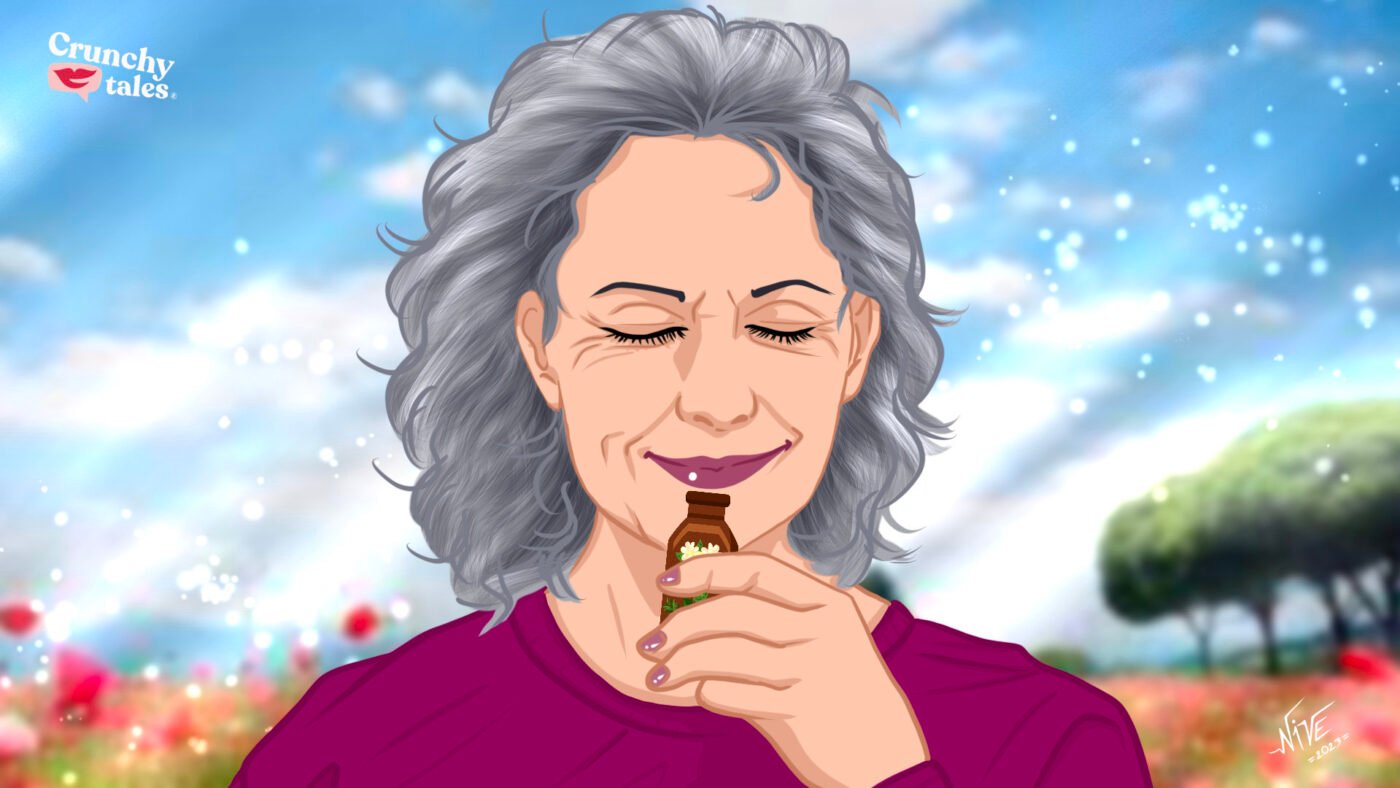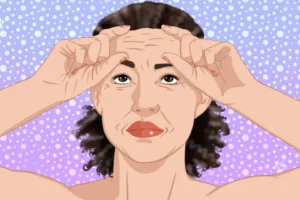Essential Oils: Your Secret Weapons for Navigating Menopause
Are you tired of the rollercoaster of menopause? Essential oils might just hold the key to finding balance and serenity during this transitional phase. Managing symptoms and emotions in this stage of life might be very challenging but you can alleviate menopausal mood swings, hot flashes, migraines and fatigue with the help of essential oils and then promote a sense of balance and well-being.
Having been used for centuries for their therapeutic properties, essential oils now are gaining recognition for their ability to support emotional health. So, whether you’re feeling irritable, anxious, or overwhelmed, there’s likely to be a good one that can help restore calm and uplift your spirits.
Join us as we dive deeper into the world of essential oils and their potential to transform your menopause experience.
What are essential oils?
Essential oils are concentrated extracts of various plants. Practitioners use them in natural and alternative ways such as aromatherapy and naturopathy because their fragrant molecules have the power to stimulate the limbic system, the part of the brain responsible for emotions and mood regulation.
These powerful oils are extracted through distillation or mechanical methods, ensuring that you receive the purest and most potent product possible. After extraction, the aromatic chemicals are expertly combined with a carrier oil, creating a product that is ready for use.
But beware of imitations – essential oils obtained through chemical processes simply don’t measure up. For the true benefits of essential oils, choose only those that are distilled or cold-pressed.
What essential oils are good for the menopause?
If you’re not keen on taking prescribed medications to manage your symptoms, you might want to consider exploring alternative solutions. With their natural compounds, essential oils can come to the rescue offering relief to the emotional turmoil of menopause.
However, when seeking the most suitable essential oils to alleviate menopausal symptoms, it is crucial to consider various factors. It’s important to note that there is no universal essential oil that is suitable for every individual: their efficacy depends on an individual’s distinct body chemistry.
Furthermore, the choice of essential oils for menopause is contingent upon the specific symptoms one is experiencing. Those ones that aid in reducing hot flashes may not necessarily be effective in alleviating anxiety. Therefore, it is essential to customize your regimen based on the symptoms you are encountering.
For example, lavender oil, renowned for its calming properties, can promote relaxation and improve sleep quality, helping to alleviate mood swings.
Geranium oil, on the other hand, is known for its balancing effects and can uplift and stabilize emotions. Clary sage oil also can be very helpful as it has shown promise in reducing anxiety and improving overall well-being, while ylang-ylang oil may help reduce feelings of anger and frustration.
Other popular essential oils for alleviating menopause symptoms are Peppermint Oil, which can effectively soothe the discomfort associated with hot flushes, and Basil Oil which contains an oestrogen-like property able to do wonders for your energy levels.
“My favourite essential oils for energizing my body and mind are peppermint and wild orange,” writes Dr. Mariza Snyder a chiropractic, specializing in holistic medicine and nutrition, author of ‘The Essential Oils Menopause Solution‘. “Not only do they support mental alertness and focus, but they also open the respiratory system for deep breathing during movement. As an added bonus, both peppermint and citrus essential oils help banish sugar cravings—which is important because there’s an intricate connection between perimenopause and blood sugar! Diffusing them in the morning or adding a drop to your palms, rubbing, and deeply inhaling the scent can be just what you need to start your day, pick up your afternoon, or supercharge your workout“.
You’ll also want to look for a mix of oils that will support your whole body through the entire perimenopause experience.
“Clary sage, ylang-ylang, and lavender help keep cortisol levels stable while calming your body and mind and supporting your libido. Geranium can naturally support estrogen levels while also supporting a healthy mood. Bergamot is also great for mental health and works by both energizing and relaxing your body and mind“, she concludes.
How to use essential oils for managing menopause symptoms
Incorporating essential oils into your daily routine to alleviate the symptoms of perimenopause and menopause is easier than you think and yet very effective. Depending on the symptoms that you are dealing with and the type of essential oil needed, you may want to use them in different ways.
Here are the most popular ones.
Massage
Massage has been widely recognised for its ability to reduce stress levels, and when combined with essential oils, the benefits can be even more profound. Numerous studies have demonstrated the positive effects of aromatherapy massage in balancing mood and anxiety during menopause, surpassing the benefits of massage alone.
To create your own personalized massage oil, you can dilute essential oils with carrier oils like jojoba or sweet almond oil. Applying this mixture to your skin or having a loved one give you a soothing aromatherapy massage can be incredibly relaxing. Experiment with different combinations of essential oils to tailor the massage oil specifically to your unique needs.
If you find yourself experiencing sudden hot flushes, diluting Basil Essential Oil with a carrier oil and then gently massaging it onto the back of your neck or your feet may provide some relief.
Diffuser
One effective method for utilizing essential oils in the management of menopausal symptoms involves incorporating a few drops into a diffuser. This practice facilitates the continuous diffusion of aromatic molecules throughout the room, helping you to effortlessly inhale the therapeutic properties of essential oils while engaging in your daily activities.
Pillow mist
If you’re having trouble sleeping, creating an aromatherapy pillow mist could help. It’s really easy! Just grab a clean spray bottle and add a few drops of your favourite essential oils, like lavender or geranium. Then, fill the bottle with distilled water. Now, all you have to do is spritz this lovely mixture over your pillow and bedding.
It might just help you drift off into a peaceful sleep faster. And if you’re feeling a bit stressed or anxious, you can also try inhaling some peppermint oil. Just put a few drops onto a tissue or napkin and gently bring it close to your nose while taking slow, deep breaths.
Aromatherapy bath oil
Taking a hot bath can be incredibly soothing. To enhance your bath experience, you can create your very own refreshing bath oil. Just mix a few drops of your favourite essential oils with a tablespoon of carrier oil. When you pour this mixture into your bath water, you’ll be able to enjoy the benefits of aromatherapy while you relax and unwind.
The Takeaway
If you’re on the hunt for a more natural way to deal with menopause symptoms, aromatherapy can be super helpful. It can even be a great addition to your hormone replacement therapy. But remember, before you go all in with essential oils, it’s usually a good idea to discuss this with your doctor or a certified aromatherapist.
Like this post? Support Us or Sign up to our newsletter to get more articles like this delivered straight to your inbox!





